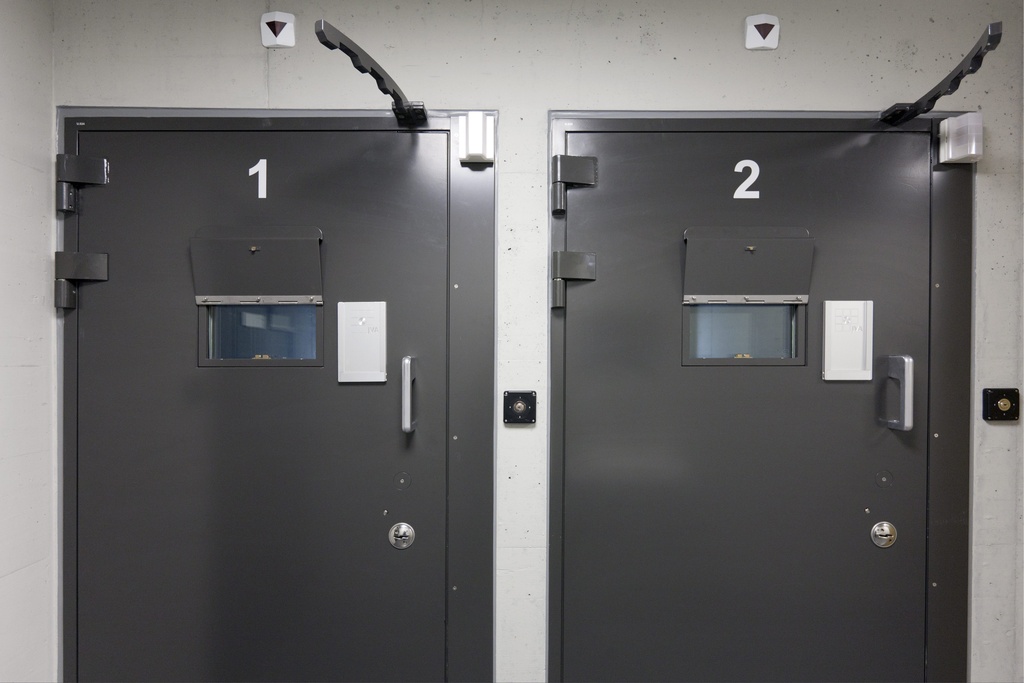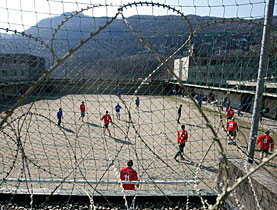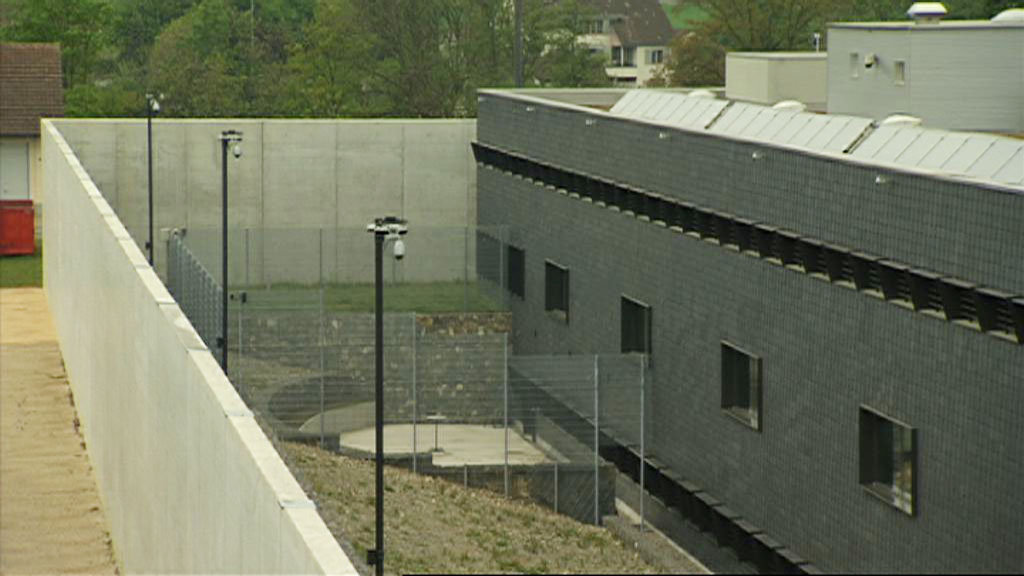Divisive financial penalties set to be scrapped

Plans by the government to abolish suspended fines for offenders and re-introduce short prison sentences have been welcomed, despite some dissenting voices.
The controversial sanction was introduced less than five years ago and has been criticised by the cantonal authorities and the courts.
The use of electronic bracelets to allow some sentences to be carried out in the community is also under review.
The justice ministry has been mandated to finalise its proposals by next March for parliament to discuss as part of a wide-ranging overhaul of the Swiss criminal code.
“To be effective and credible, criminal law must be accepted by the population which must have confidence in the effectiveness of sanctions,” said a ministry statement published earlier this week.
The government had presented a series of proposals to amend the penal code in June 2010 which were then sent to political parties, organisations and institutions as well as the 26 cantons for consultation.
Most respondents have welcomed the planned elimination of the suspended fines, according to the Federal Justice Office.
“Short prison sentences can be an opportunity for the re-orientation of an offender, while suspended fines only have a small deterrent potential. The convicted criminal does not consider them as a punishment,” said Bernardo Stadelmann of the Justice Office.
Credibility issue
Martin Killias, a professor of criminology at Zurich University, is adamant that a reform is crucial.
“The current criminal law has lost its credibility, as first offenders know they will get away scot-free,” he says.
In a similar vein Eric Cottier, a prosecutor in canton Vaud, said the new leniency had often left victims of crimes feeling they were not taken seriously.
In an interview with public television, Cottier said police and prosecutors welcomed the government’s intention to follow their recommendations and to return to a system which allowed for “more firmness”.
Premature
However, Daniel Jositsch, professor of criminal law at Zurich University, argues a return to the old system is premature.
”The government could have made the penal system more flexible without abandoning suspended fines,” he said.
He adds that such fines do indeed have an impact on first offenders.
Jositsch, a member of the centre-left Social Democrats faction in parliament, is among a group of academics and lawyers to reject the government plans.
Opponents, which also include the Green Party and some cantonal authorities, said scrapping suspended fines would result in negative social consequences for the convicted criminals and their relatives. In addition it is seen as interference in the autonomy of judges.
Crime rate
A report by cantonal justice and police directors, published in August, found that the level of burglaries, violence and criminal threats in Switzerland had reached the European average and that Switzerland was no longer the safest country worldwide.
The number of burglaries, instances of violence and threats had risen by two per cent over the past six years, according to the latest victims’ survey carried out by Zurich University.
The study, led by criminologist Killias, also found that most of the 15,000 people interviewed for the survey had confidence in the police.
But the justice ministry had declined to poll public opinion about the effectiveness of the current sanctioning system, according to Killias.
The current reform includes the re-introduction of short prison sentences and the use of electronic bracelets. It also seeks to simplify the procedure for community work.
The cabinet also plans to review the list of crimes in the penal code next year. The aim is a more coherent sanctioning system.
Moves are underway to tighten the law to clamp down on white collar crime, youth prostitution and paedophile crime.
The government mooted the idea in 1998 in a bid to boost re-integration of offenders into society, arguing it was a less expensive and more efficient system than jail terms.
Suspended financial penalties were introduced as a possible form of sanction in 2007.
But opposition has increased steadily and in 2009 parliament mounted pressure on the government to repeal the reform.
The justice ministry said it does not expect a dramatic increase in number of prisoners as a result of the re-introduction of short jail terms.

In compliance with the JTI standards
More: SWI swissinfo.ch certified by the Journalism Trust Initiative






You can find an overview of ongoing debates with our journalists here . Please join us!
If you want to start a conversation about a topic raised in this article or want to report factual errors, email us at english@swissinfo.ch.